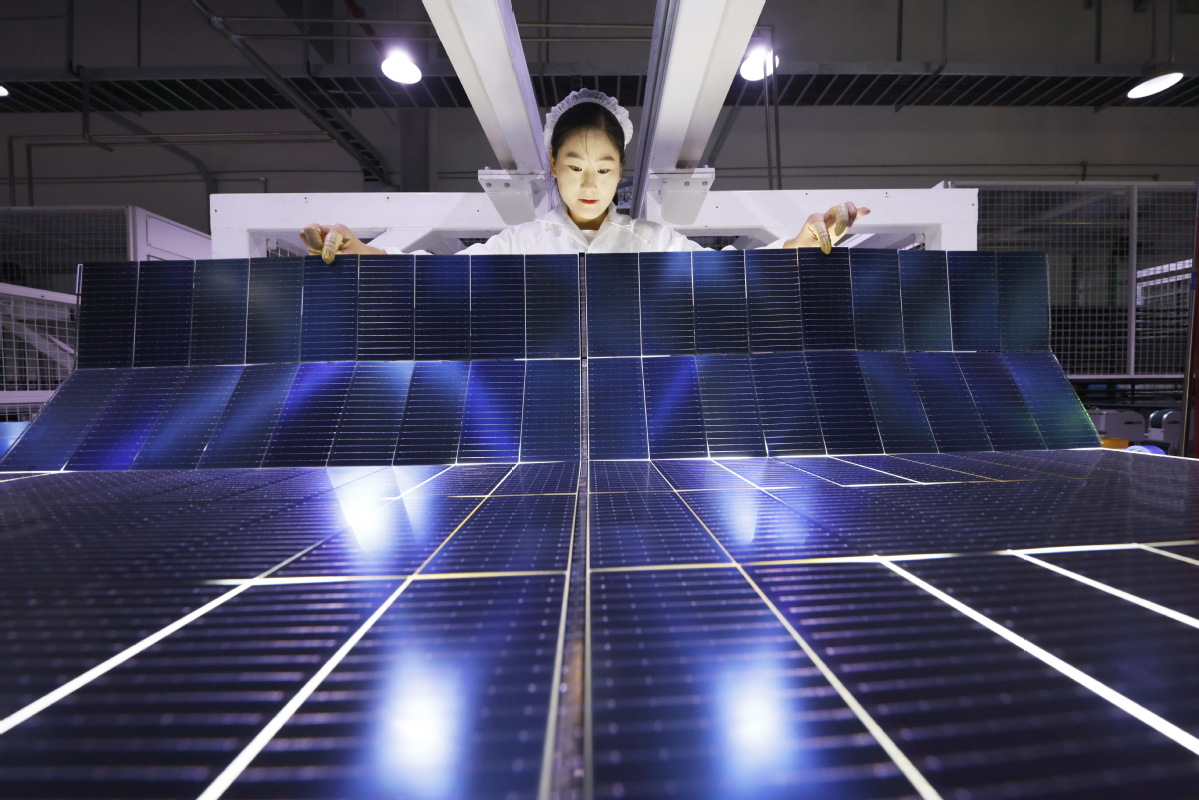Bold measures to rev up Chinese economy
Economists call for balancing monetary easing with fiscal stimulus to rejuvenate consumer confidence, boost domestic demand


In response to the pressing challenges, a recent meeting by the Political Bureau of the Communist Party of China Central Committee called for stabilizing the real estate market and strengthening fiscal and monetary policy support.
The country should effectively implement existing policies, step up efforts to roll out incremental policies and strive to accomplish the targets and tasks for this year's economic and social development, according to the meeting.
Wang suggested that the government should increase fiscal deficits or issue special treasury bonds, in a bid to alleviate local government debt pressures, as many local authorities faced increased financial burdens due to heightened public health expenditures during the COVID-19 pandemic.
Wang emphasized that increasing investment funding can enable local governments to make overdue payments owed to businesses, which will help boost market confidence, spur corporate investment and stimulate domestic demand.
Looking ahead, he also called for forceful fiscal stimulus to boost investment in urban renewal and spur consumption.
China has already pledged solid efforts to boost domestic demand, as the government allocated 150 billion yuan ($21.26 billion) in ultra-long-term special treasury bonds in August to support trade-in deals for consumer goods.
"The push for driving trade-in deals for consumer goods has effectively stimulated consumption potential, directly driving rapid sales growth among key consumer goods, including automobiles, home appliances and home furnishings," said Wen Hua, deputy director-general of the Department of Resource Conservation and Environmental Protection at the National Development and Reform Commission, the country's top economic regulator.
The policy measures also effectively boosted investment and profitability in related industries, further enhancing the development momentum of relevant enterprises, Wen said during a recent news conference held by the NDRC in Beijing.
In fact, the country's accelerated push for promoting trade-in deals for products is paying off, with significant growth seen in consumer spending on key goods like automobiles and home appliances, providing a solid base for continued economic recovery in the following months, experts said.
From Sept 1 to Sept 22, sales of passenger cars grew 10 percent month-on-month, while sales of new energy vehicles rose 7 percent on a monthly basis, said the China Automobile Dealers Association.
NDRC data showed investment in consumer goods manufacturing rose 14.9 percent year-on-year in the first eight months, while output of consumer goods manufacturing increased by 4.2 percent year-on-year in August.
Despite facing challenges, China's economy will continue to recover with a series of stimulus policies taking effect gradually, including the use of funds for promoting trade-in programs for consumer goods, said Huang Hanquan, head of the Chinese Academy of Macroeconomic Research.
Zhu Baoliang, former chief economist of the State Information Center, said the key meeting held by the Political Bureau of the CPC Central Committee has addressed market concerns, which will help stabilize expectations regarding China's economic future.
"While achieving the around 5 percent annual growth target may be challenging, the government's newly announced policies are expected to provide substantial stimulus for the economy in 2024 and beyond, ultimately enhancing the prospects for economic development," he added.
While the weaker-than-expected economic data in July and August suggest that China's GDP growth is likely to decelerate to around 4.5 percent year-on-year in the third quarter, Zhu believes China's economy will likely pick up slightly in the fourth quarter. "It is possible for China to meet its annual growth target this year."
Following the latest stimulus package announced by the People's Bank of China, Betty Wang, lead economist at British think tank Oxford Economics, said her team expects that China's central bank will cut the reserve requirement ratio by an additional 50 basis points in the fourth quarter.
It is also likely that the PBOC will cut the seven-day reverse repo rate by a further 20 basis points in the first quarter of next year in an effort to lower funding costs in the economy, Wang added.
"We believe the economy needs a consistent policy stance in the future and policy coordination from the fiscal side," Wang said. "On the fiscal side, increasing fiscal spending or upgrading the current government bond issuance plan could provide a synchronized effect on the macroeconomy in a positive way."
Citing PBOC's latest decision to lower the interest rate of existing mortgages and align the down payment ratio of first- and second-home purchases as well as the removal of some restrictions for homebuyers in first-tier cities, Wang said these moves will address some of the existing concerns on the demand side.
"However, it is subject to policy enforcement and will take time to feed through," Wang added. "Additional funding and supply-side measures to destock housing inventories are still needed to stabilize the sector."


















